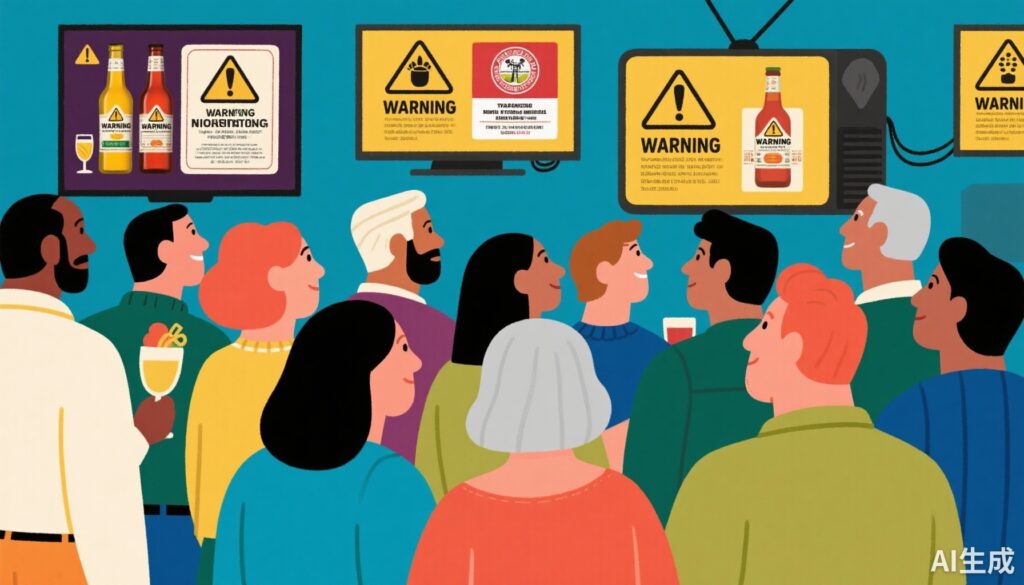Introduction
Alcohol use is a significant public health concern in the United States, being associated with a range of adverse outcomes including disability and death. Effective alcohol control policies have been shown to reduce alcohol-related harms by limiting consumption and increasing awareness of alcohol’s risks. Understanding public support for different alcohol control measures is essential, as policymakers are more inclined to enact regulations that have strong public endorsement. Yet, it remains unclear which alcohol control policies currently receive the most support among US adults who consume alcohol.
Study Objective
This study aimed to evaluate the level of support for various alcohol control policies among US adults who consume alcohol and to assess how such support varies based on behavioral factors (such as drinking patterns) and demographic characteristics (such as sex, race, and political affiliation).
Methods
A cross-sectional online survey was conducted from September to October 2024, sampling a nationally representative group of US adults aged 21 years or older. Eligibility criteria included self-reporting alcohol consumption of at least one alcoholic beverage per week over the past four weeks. The survey asked participants to rate their support for a range of alcohol control policies on a scale from 1 (strongly oppose) to 5 (strongly support). Policies included requirements for cancer warnings and calorie labeling on alcoholic beverage containers, restrictions on alcohol advertising on television during children’s viewing hours, lowering the blood alcohol content limit for driving, prohibiting late-night alcohol sales, increasing taxes on alcohol, and reducing the number of outlets licensed to sell alcohol.
Results
A total of 1,036 adults completed the survey. The sample included 52% men with an average age of 49.4 years. Racial/ethnic composition was diverse, with approximately 12% Hispanic/Latino, 11% Black/African American, and 65% White participants.
About half of the participants supported policies requiring cancer warnings on alcohol containers (49%), labeling drinks per container (51%), and calorie content information (56%). Additionally, 52% supported prohibiting alcohol advertisements on television during times when children are likely watching. Opposition to these policies ranged from 8% to 19%, indicating that most consumers were either neutral or supportive of these measures.
In contrast, support was lower for policies aimed at stricter consumption and sales controls, with only 16–25% supporting lowering the legal blood alcohol limit for drivers, banning late-night alcohol sales, or increasing alcohol taxes. Support was lowest (10%) for reducing the number of alcohol-selling outlets. More participants opposed these restrictive policies than supported them.
Demographic and behavioral correlates of support revealed that adults who drank alcohol less frequently, did not engage in binge drinking, or read existing alcohol health warnings recently were more likely to support alcohol control policies. Women, Hispanic/Latino adults, Democrats, and political independents showed higher support compared to men, non-Hispanic participants, and Republicans.
Discussion
The study highlights a significant distinction between public support for informational policies—such as mandatory cancer warnings, calorie content labels, and advertising restrictions—and regulatory policies, like increasing taxes or restricting sales hours.
Information-focused policies enjoy broader acceptance among alcohol consumers, likely because they empower individuals with knowledge to make informed choices. The higher support among women and certain political groups aligns with broader public health trends where these demographics often advocate for preventive health measures.
Lower support for stricter regulatory policies may reflect concerns about personal freedom, economic impacts on businesses, or lack of awareness about potential benefits. The limited opposition to labeling and advertising restrictions suggests these could serve as effective initial policies to build momentum for more comprehensive control measures.
Conclusions and Implications for Policy
This nationally representative survey of US adults who drink alcohol indicates that many support policies centered on labeling and advertising restrictions. Few consumers opposed these policies, suggesting they are socially acceptable and feasible starting points for alcohol control interventions.
Policymakers aiming to reduce alcohol-related harms might prioritize implementing or strengthening cancer warnings and calorie content labels on alcoholic beverages and restricting alcohol advertisements during child-viewing hours. These measures could serve as “ground-softening” strategies—helping to increase public acceptance and political will for adopting stronger policies such as higher alcohol taxes or more restrictive sales regulations.
Continued public education about the harms of excessive alcohol consumption and the public health benefits of policy interventions is necessary to increase broader support for comprehensive alcohol control. Tailoring communications to reach regular and binge drinkers, as well as engaging diverse communities, may help drive more equitable health outcomes related to alcohol use.
References
Grummon AH, Chelius C, Lee CJY, et al. Support for Alcohol Control Policies Among US Alcohol Consumers. JAMA Netw Open. 2025;8(10):e2535337. doi:10.1001/jamanetworkopen.2025.35337


